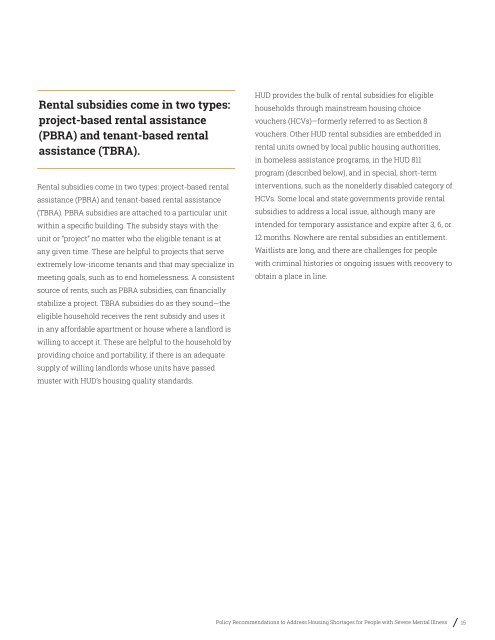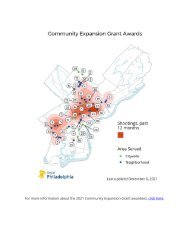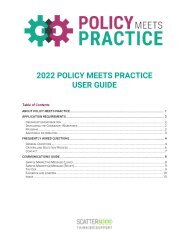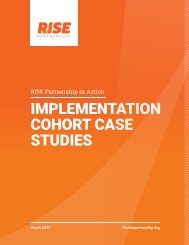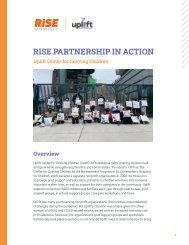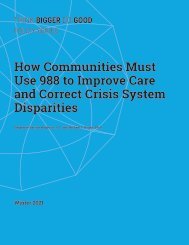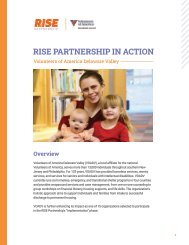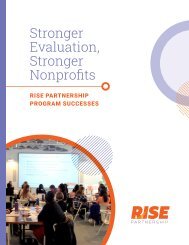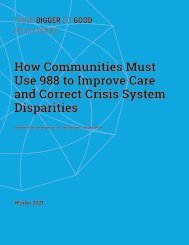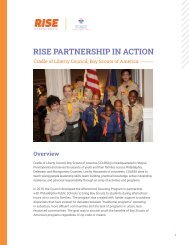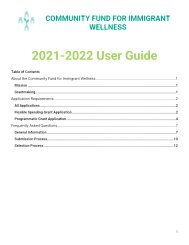Policy Recommendations to Address Housing Shortages for People with Severe Mental Illness
You also want an ePaper? Increase the reach of your titles
YUMPU automatically turns print PDFs into web optimized ePapers that Google loves.
Rental subsidies come in two types:<br />
project-based rental assistance<br />
(PBRA) and tenant-based rental<br />
assistance (TBRA).<br />
Rental subsidies come in two types: project-based rental<br />
assistance (PBRA) and tenant-based rental assistance<br />
(TBRA). PBRA subsidies are attached <strong>to</strong> a particular unit<br />
<strong>with</strong>in a specific building. The subsidy stays <strong>with</strong> the<br />
unit or “project” no matter who the eligible tenant is at<br />
any given time. These are helpful <strong>to</strong> projects that serve<br />
extremely low-income tenants and that may specialize in<br />
meeting goals, such as <strong>to</strong> end homelessness. A consistent<br />
source of rents, such as PBRA subsidies, can financially<br />
stabilize a project. TBRA subsidies do as they sound—the<br />
eligible household receives the rent subsidy and uses it<br />
in any af<strong>for</strong>dable apartment or house where a landlord is<br />
willing <strong>to</strong> accept it. These are helpful <strong>to</strong> the household by<br />
providing choice and portability, if there is an adequate<br />
supply of willing landlords whose units have passed<br />
muster <strong>with</strong> HUD’s housing quality standards.<br />
HUD provides the bulk of rental subsidies <strong>for</strong> eligible<br />
households through mainstream housing choice<br />
vouchers (HCVs)—<strong>for</strong>merly referred <strong>to</strong> as Section 8<br />
vouchers. Other HUD rental subsidies are embedded in<br />
rental units owned by local public housing authorities,<br />
in homeless assistance programs, in the HUD 811<br />
program (described below), and in special, short-term<br />
interventions, such as the nonelderly disabled category of<br />
HCVs. Some local and state governments provide rental<br />
subsidies <strong>to</strong> address a local issue, although many are<br />
intended <strong>for</strong> temporary assistance and expire after 3, 6, or<br />
12 months. Nowhere are rental subsidies an entitlement.<br />
Waitlists are long, and there are challenges <strong>for</strong> people<br />
<strong>with</strong> criminal his<strong>to</strong>ries or ongoing issues <strong>with</strong> recovery <strong>to</strong><br />
obtain a place in line.<br />
<strong>Policy</strong> <strong>Recommendations</strong> <strong>to</strong> <strong>Address</strong> <strong>Housing</strong> <strong>Shortages</strong> <strong>for</strong> <strong>People</strong> <strong>with</strong> <strong>Severe</strong> <strong>Mental</strong> <strong>Illness</strong> 15


